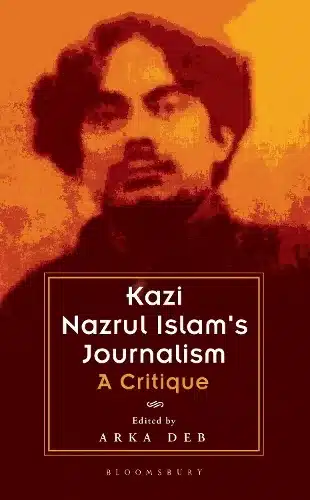Kazi Nazrul Islam’s Journalism: A Critique
Publisher:
| Author:
| Language:
| Format:
Publisher:
Author:
Language:
Format:
₹1,299 ₹909
Save: 30%
Out of stock
Receive in-stock notifications for this.
Ships within:
Out of stock
| Book Type |
|---|
ISBN:
Page Extent:
Celebrated as the national poet of Bangladesh and fondly commemorated in India as the ‘Rebel Poet’, Kazi Nazrul Islam (1899-1976) is widely known for his poetry and music, although his political philosophy and anti-colonial revolutionary sentiments are best expressed in his journalistic writings.
Nazrul’s journalistic career spans across three key newspapers: Nabajug, Dhumketu and Langol. Editorials in Nabajug addressed a diverse range of subjects, including untouchability, racial discrimination, power structure and the importance of communal harmony. Dhumketu, perhaps the most signifi?cant amongst Nazrul’s revolutionary contributions, became a testimonial to the reclamation of India’s complete freedom, which eventually proved perilous for Nazrul. Langol, the mouthpiece of the Labour Swaraj Party, was the ?first Bengali paper speci?fically for and by the working class. It provided voice to the labourers and peasants, speaking self-reflexively about the nation’s agro-economy.
Kazi Nazrul Islam’s Journalism brings together for the fi?rst time in English Nazrul’s editorials published in the colonial Indian subcontinent and showcases Nazrul’s far-reaching views on subjects close to his heart. By critically examining these essays, Arka Deb establishes Nazrul’s relevance in the current times.
Celebrated as the national poet of Bangladesh and fondly commemorated in India as the ‘Rebel Poet’, Kazi Nazrul Islam (1899-1976) is widely known for his poetry and music, although his political philosophy and anti-colonial revolutionary sentiments are best expressed in his journalistic writings.
Nazrul’s journalistic career spans across three key newspapers: Nabajug, Dhumketu and Langol. Editorials in Nabajug addressed a diverse range of subjects, including untouchability, racial discrimination, power structure and the importance of communal harmony. Dhumketu, perhaps the most signifi?cant amongst Nazrul’s revolutionary contributions, became a testimonial to the reclamation of India’s complete freedom, which eventually proved perilous for Nazrul. Langol, the mouthpiece of the Labour Swaraj Party, was the ?first Bengali paper speci?fically for and by the working class. It provided voice to the labourers and peasants, speaking self-reflexively about the nation’s agro-economy.
Kazi Nazrul Islam’s Journalism brings together for the fi?rst time in English Nazrul’s editorials published in the colonial Indian subcontinent and showcases Nazrul’s far-reaching views on subjects close to his heart. By critically examining these essays, Arka Deb establishes Nazrul’s relevance in the current times.
About Author
Reviews
There are no reviews yet.




Reviews
There are no reviews yet.